Achievements in Digital Humanities
This study investigates youths’ level of digital literacies, determines the links between digital literacies, OSN practices, and their well-being.
Department of English Language Education (ELE)
Teaching students to participate in online communities and society (digital citizenship [DC] education) can help them (a) protect themselves from such harmful behaviors and (b) maximize their positive affordances.
Department of English Language Education (ELE)

The Department of Literature and Cultural Studies, the Education University of Hong Kong (EdUHK) has developed a mobile application named “MyTopoHK”. The application is the first interactive application for reading and writing literary works on Hong Kong’s landscape. The application aims to promote reading and creative writing in Hong Kong.
Department of Literature and Cultural Studies (LCS)
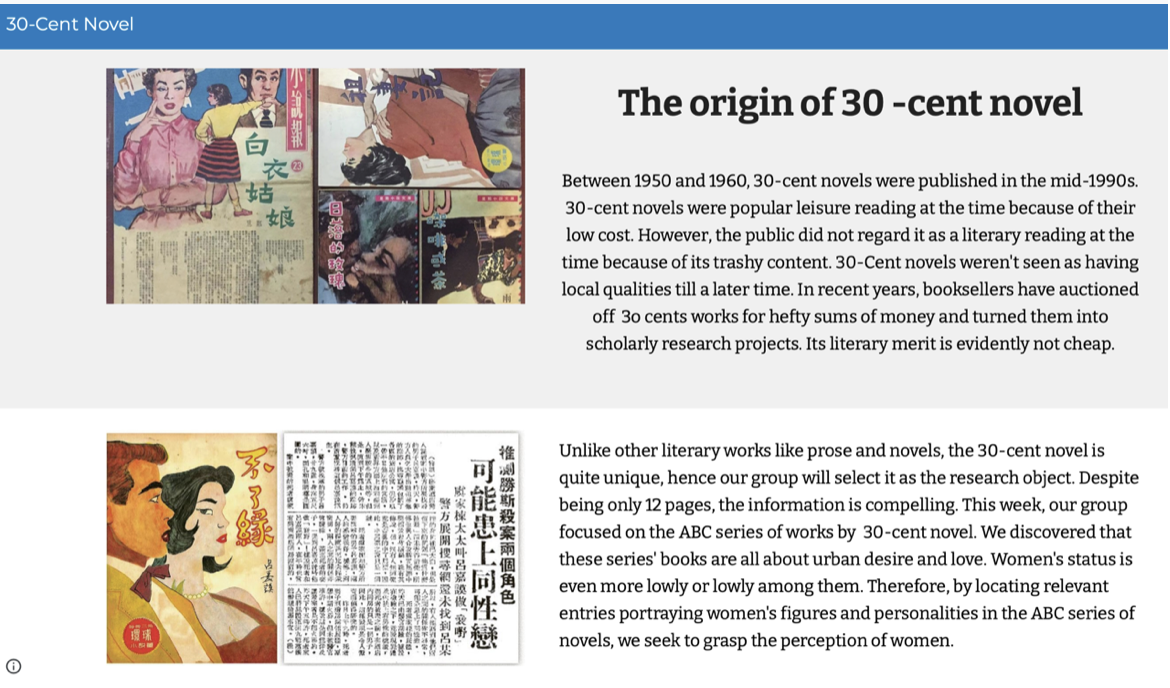
Like other universities around the world, FHM has begun offering an important course in Digital Humanities to many of its undergraduate students. The FHM course is innovative because it is a collaboratively taught by members of LCS, a literature department, and LML, a linguistics department.
Department of Literature and Cultural Studies (LCS)
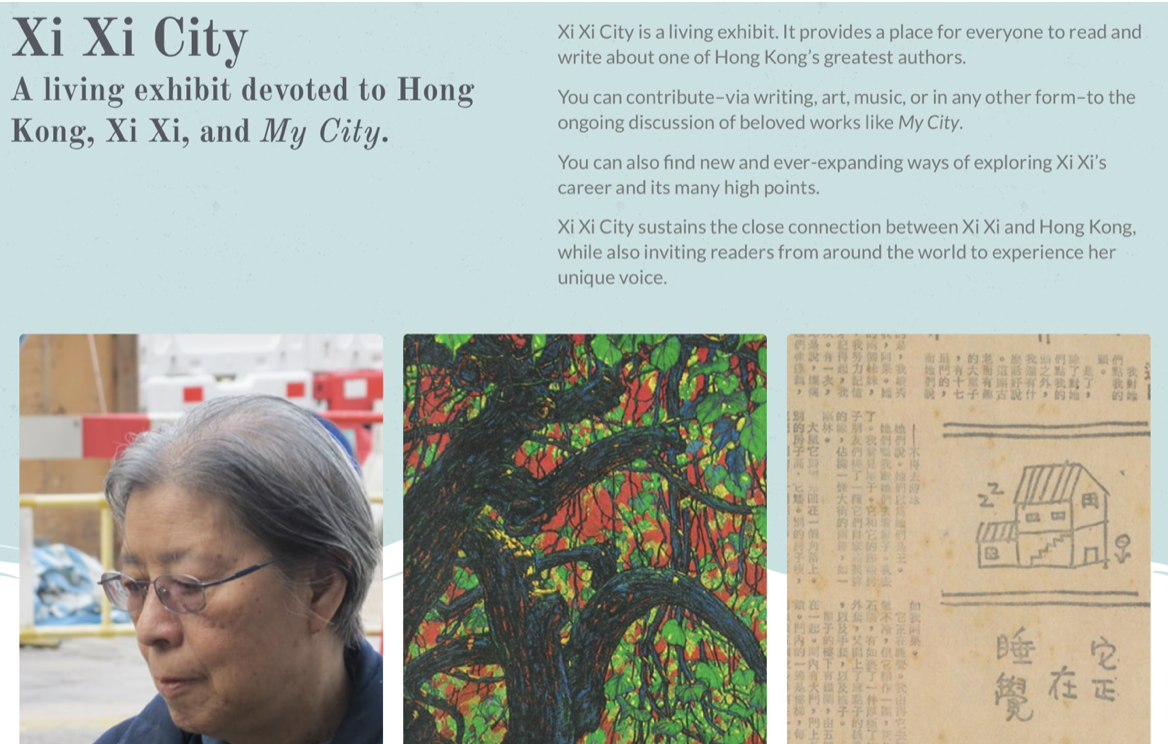
Xi Xi City is a fully bilingual digital humanities introduction to Hong Kong’s best-loved writer, and it is part of the online presentation of One City One Book Hong Kong, a community reading initiative hosted by LCS.
Department of Literature and Cultural Studies (LCS)
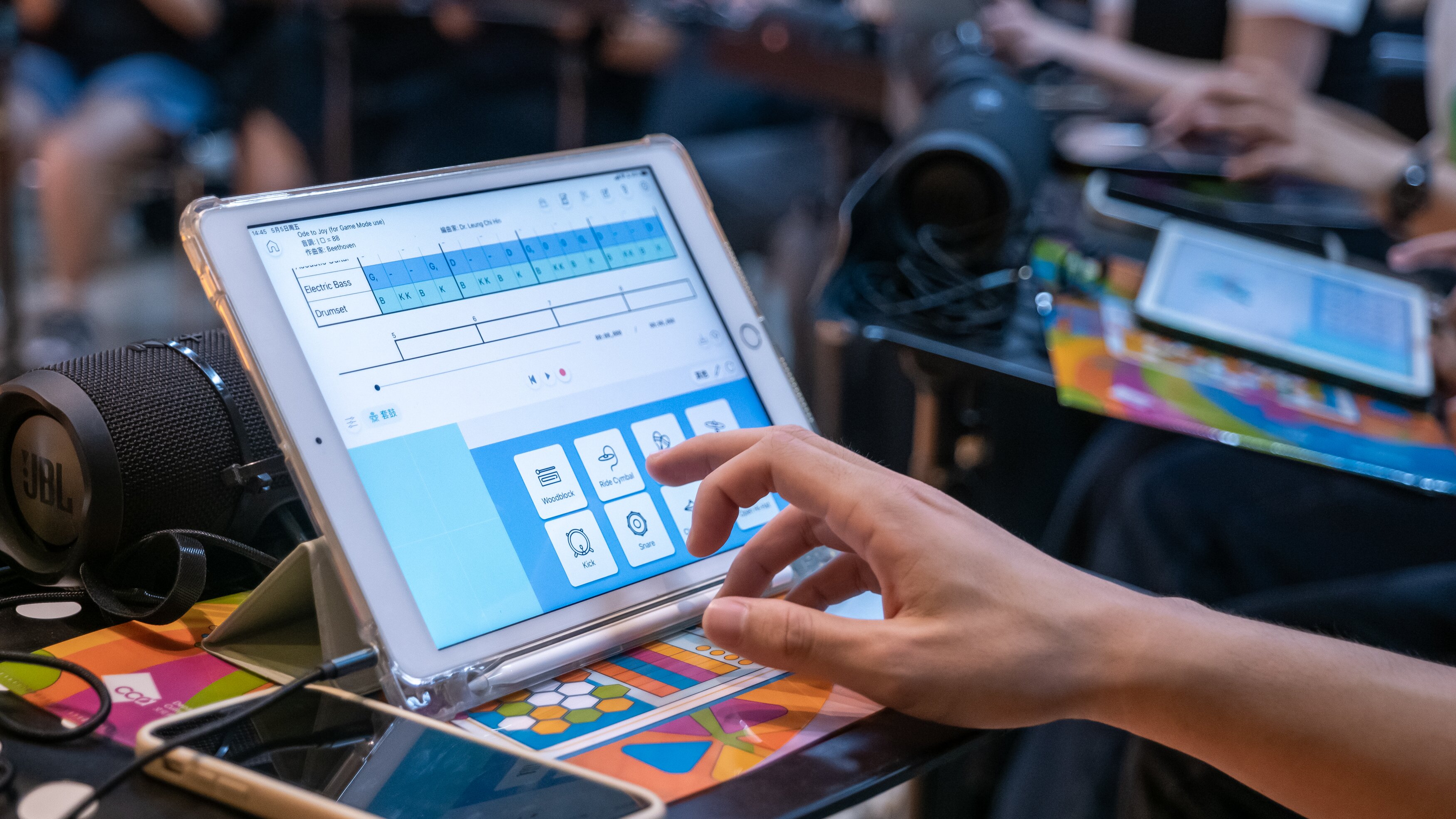
"e-Orch" is an intelligent ensemble learning platform that includes an app, "e-Orch", and a cloud-based software, "THE GRID". The invention lowers the hurdles to learning, performing and composing music by including the patented Grid Notation, 28 touch Western and Chinese instruments, three unique instrument interfaces, and gamification music playing.
Department of Cultural and Creative Arts (CCA)
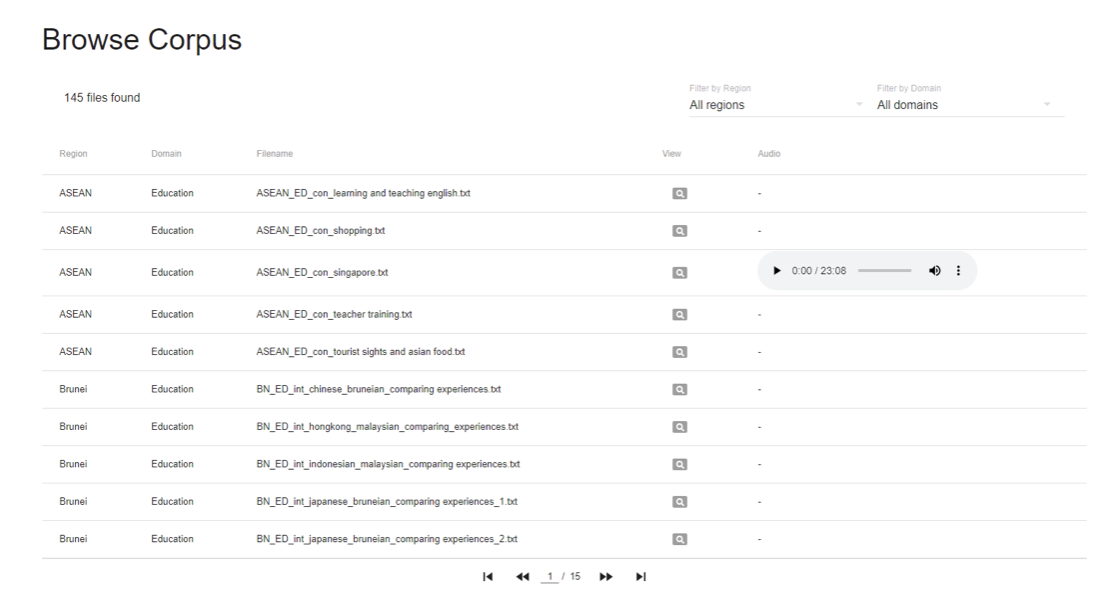
Inspired by Vienna-Oxford International Corpus of English (VOICE), a project team led by Prof Andy Kirkpatrick from Griffith University, Australia and Prof WANG Lixun from The Education University of Hong Kong developed the Asian Corpus of English (ACE) in 2014. The project team consisted of sub-teams from 10 countries/regions across Asia such as China, Japan, Philippines, Malaysia, and Brunei, and the ACE data were collected over a period of six years from these 10 different locations.
Department of Linguistics and Modern Language Studies (LML)
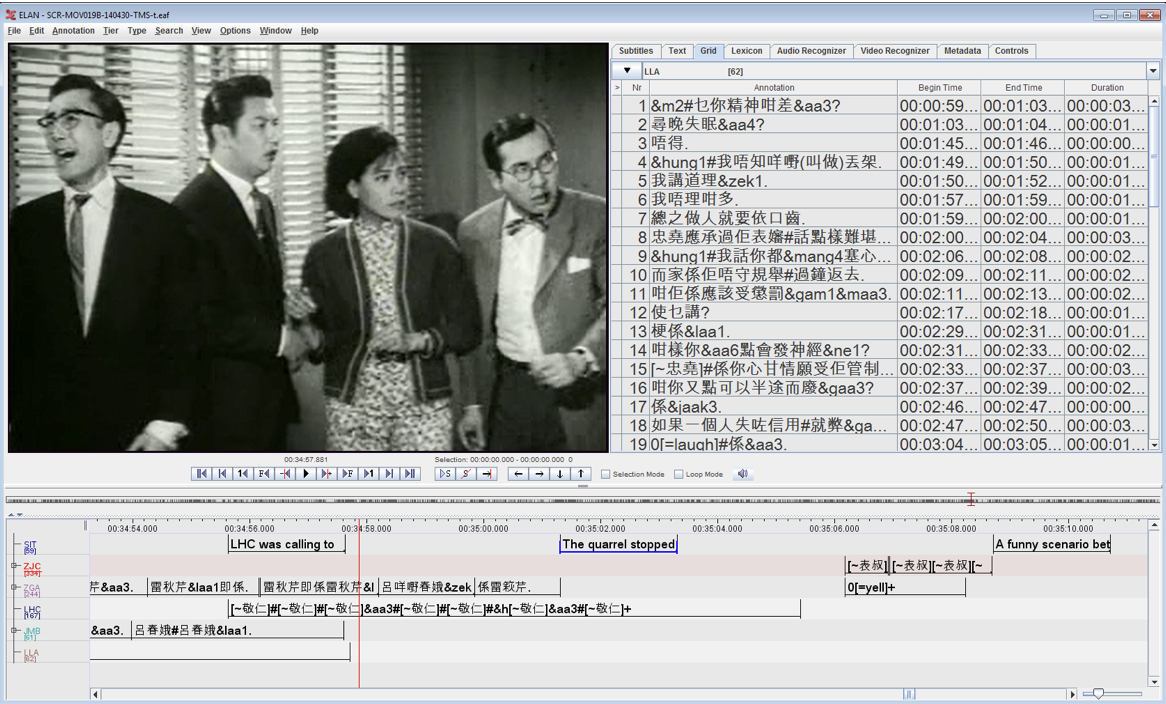
In 2011, Dr Andy Chin of the Department of Linguistics and Modern Languages Studies of the Education University of Hong Kong developed the first phase of The Linguistic Corpus of Mid-20th Century Hong Kong Cantonese. It is based on 21 Cantonese films produced in Hong Kong in the 1950s. The dialogues in the films were transcribed into Chinese characters. The corpus has about 200,000 words, and users could search for the corpus data online.
Department of Linguistics and Modern Language Studies (LML)
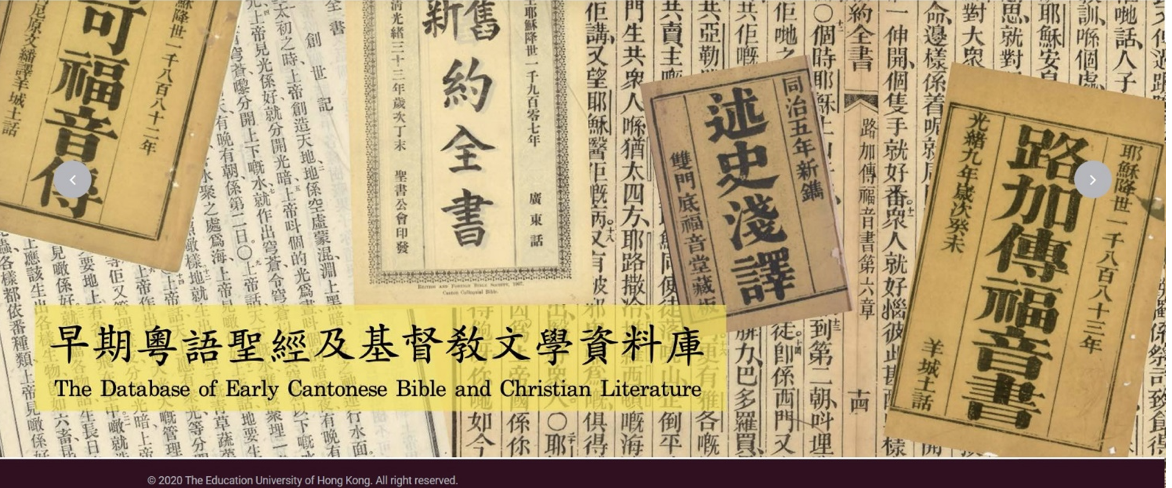
This database was officially launched in 2020 by Dr. Shin Kataoka of the Department of Linguistics and Modern Language Studies, The Education University of Hong Kong, and project members Lili Ou, Chinglaam Tang, and Kapo Chow.
Department of Linguistics and Modern Language Studies (LML)
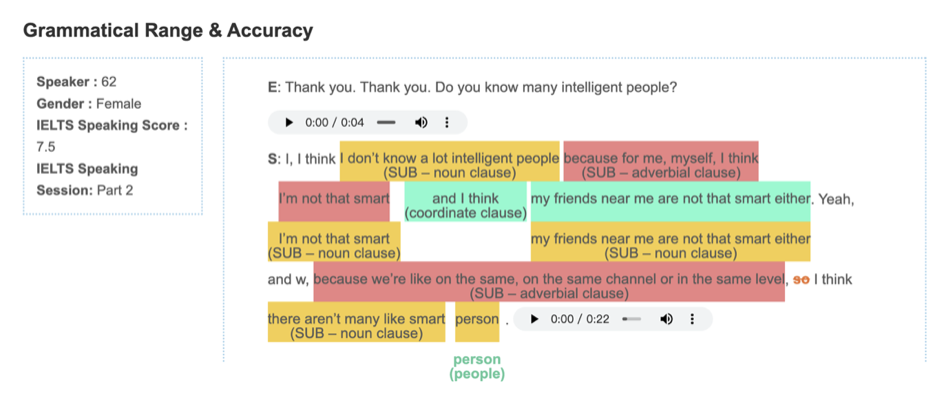
The English Speech Corpus with Different Proficiency Levels was officially launched in March 2021 by Dr Rebecca Chen from the Department of Linguistics and Modern Language Studies of the Education University of Hong Kong. The English Speech Corpus with Different Proficiency Levels aims to provide learners, teachers and researchers with high-quality authentic recordings from practice tests and detailed annotations of linguistic features of English learners. With the help of the data, English learners can identify difficulties in English speaking learning.
Department of Linguistics and Modern Language Studies (LML)
The trend towards e-learning and integrated teaching has been growing in recent years, and CLE is committed to keeping pace with these developments. We have been actively producing multimedia teaching videos that cover a wide range of topics related to Chinese and Cantonese knowledge. The aim is to present this information in a way that is engaging and easy to understand, thereby attracting students and members of the public to watch and learn.
Centre for Language in Education (CLE)
Empowering Digital Learning by a Series of Online Teaching Video Programme in Primary Chinese Classroom and Beyond
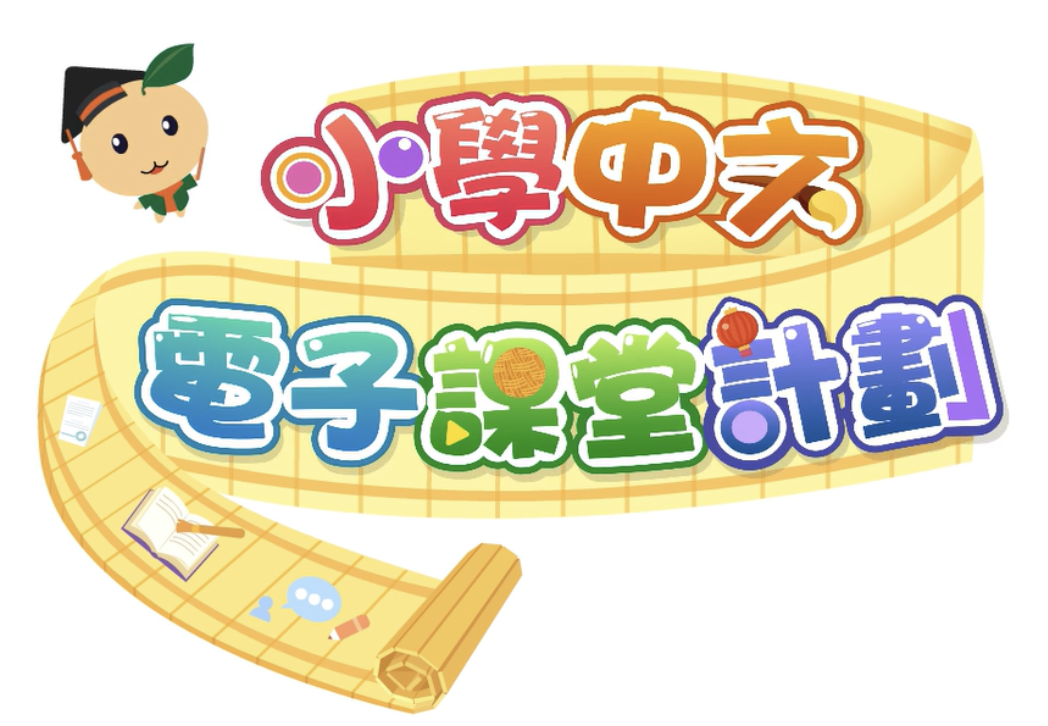
The project aims to create a free online platform, to produce and broadcast a series of Chinese Language education video programme for local primary students. The series includes a total of 20 episodes, with approximately 5-6 minutes in each episode. The project team will select related e-books or e-passages and other interactive approach, like story-telling and games for each episode to cater for the interest and concentration span of primary students.
Department of Chinese Language Studies (CHL)
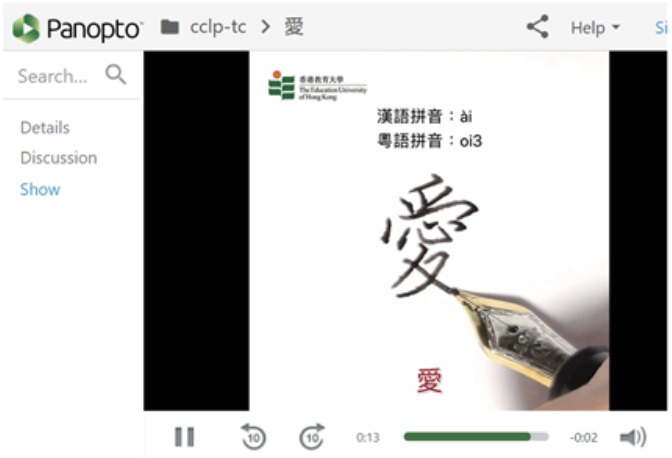
The project team had established an online Chinese calligraphy self-learning platform in response to the needs of Hong Kong teachers in writing skills with chalk (blackboard) and hard pen (marking homework). This platform uses 214 Chinese character radicals and high-frequency examples to present the handwriting skills of Hong Kong’s standardised traditional Chinese characters in the form of short videos.
Department of Chinese Language Studies (CHL)
This project creates a nexus of professional development support for English teachers in Hong Kong and around the world who are exploring the potential of technology-enhanced teaching in English.
Department of English Language Education (ELE)
This project aims to provide high quality online English language learning materials for primary school students to supplement their formal learning.
Department of English Language Education (ELE)
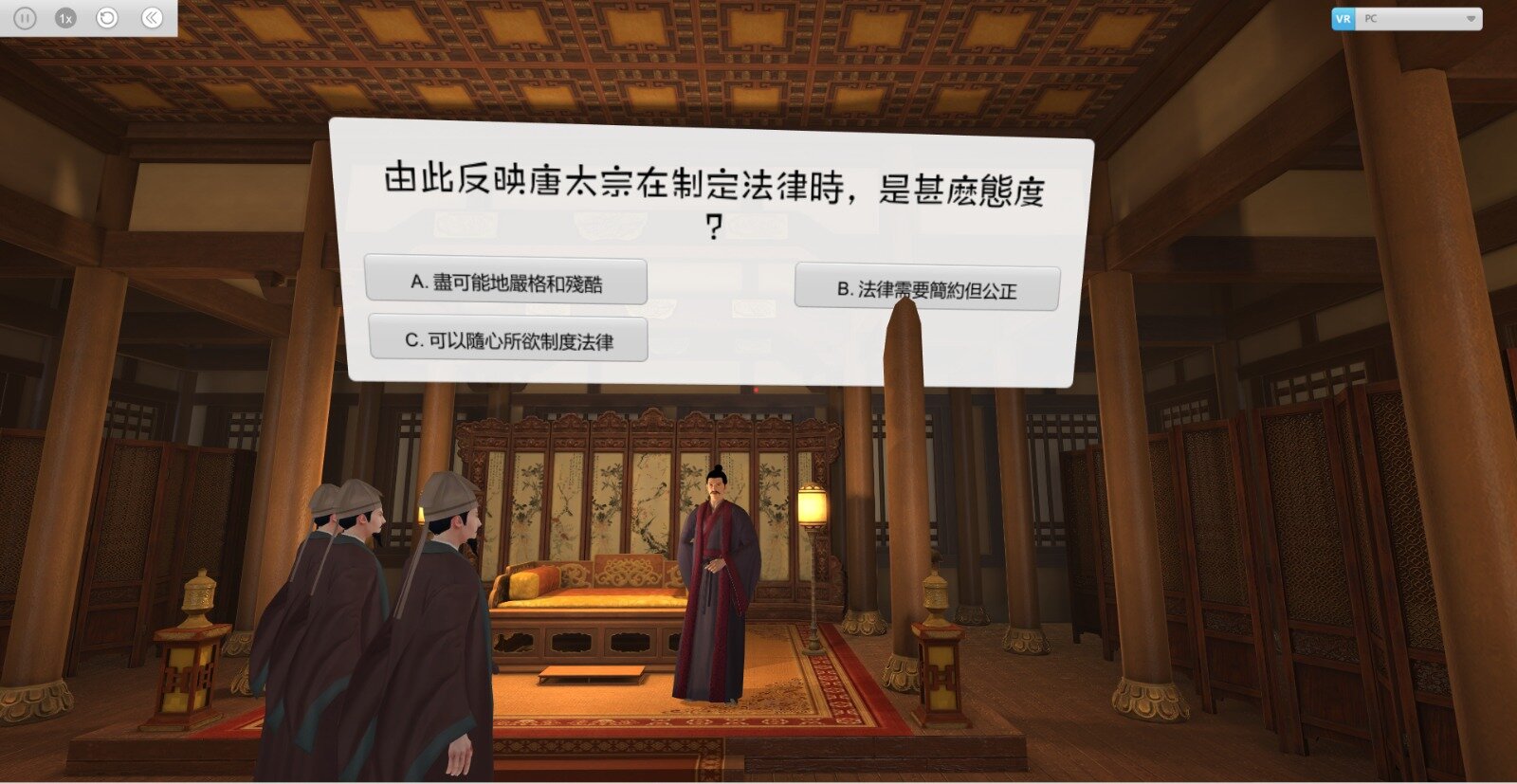
To align with the Education Bureau's Chinese History Curriculum Guide, this project employs Virtual Reality (VR) technology to design Chinese history teaching materials. This enables secondary school students to learn Chinese history through first-person "immersion" and "experience," while also enhancing positive psychology. Engaging EdUHK students in this project leverages innovative technology to elevate teaching quality, cultivate professional excellence, and ethical responsibility, achieving EdUHK's educational leadership goals.
Department of Literature and Cultural Studies (LCS)
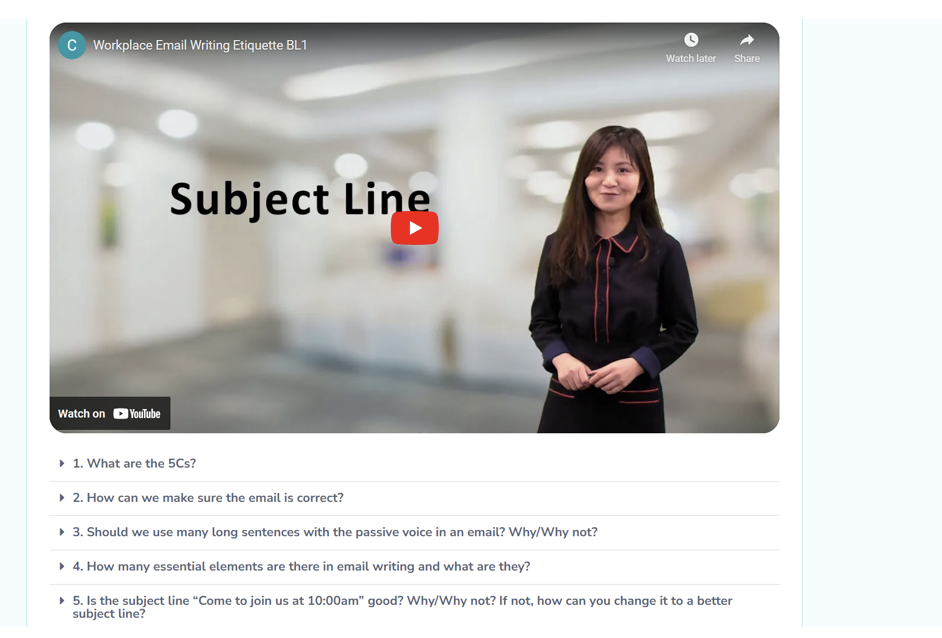
Workplace English Self-access Learning Platform is one of the deliverables of CRAC Project (#03ABR) which aims at providing extra learning support for senior-year entry students. This platform, developed by the Centre for Language in Education, helps students with their learning of English relevant and essential in the workplace. Students can access resources for workplace English where 'English for job application', ‘Emails for administration', ‘Writing at workplace' and ‘Speaking at workplace' are introduced.
Centre for Language in Education (CLE)


